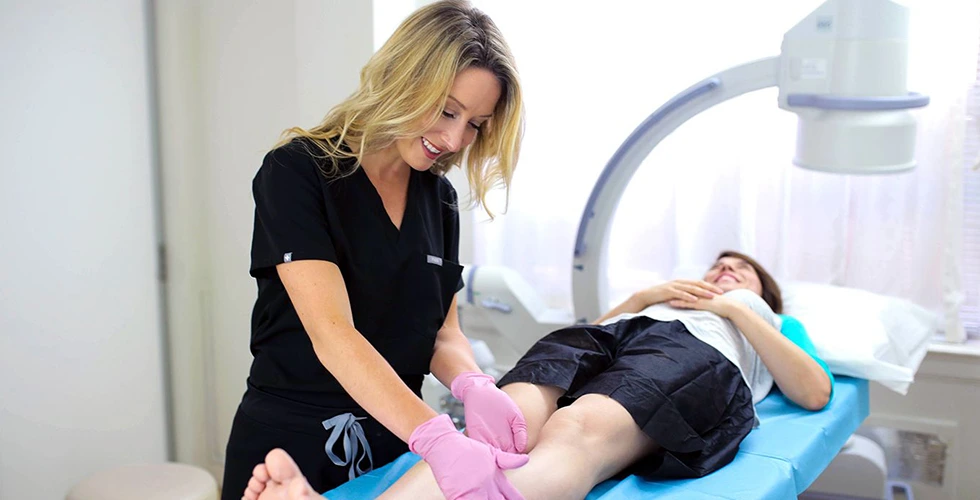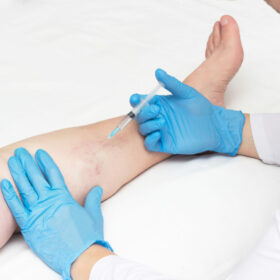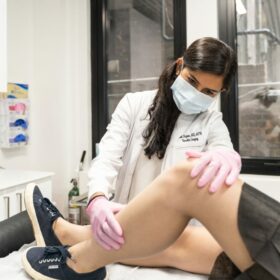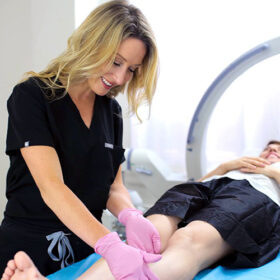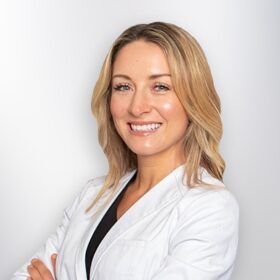Venous insufficiency is a condition in which the veins in your legs are unable to properly transport blood back to your heart. As a result, blood pools in your legs, causing varicose veins, spider veins, leg pain, and swelling. Venous insufficiency is a common condition affecting millions of people in the United States. Many people wonder if venous insufficiency can heal itself, or if medical treatment is necessary. In this article, we will answer that question and discuss the warning signs, risk factors, and treatment options for venous insufficiency.
Warning Signs of Venous Insufficiency
The warning signs of venous insufficiency may include:
- Varicose veins: Bulging, twisted veins that are visible just below the surface of the skin.
- Spider veins: Small, thin veins that are visible just below the surface of the skin.
- Leg pain: A dull ache, heaviness, or cramping in your legs that gets worse after standing or sitting for long periods of time.
- Leg swelling: Swelling in your legs, ankles, or feet.
- Skin changes: Skin that is thick, discolored, or prone to ulceration around the ankles.
- Restless legs: A strong urge to move your legs, especially at night.
If you are experiencing any of these warning signs, it is important to see a vein specialist as soon as possible.
Risk Factors for Venous Insufficiency
There are several risk factors that increase your chances of developing venous insufficiency, including:
- Age: Venous insufficiency is more common in people over the age of 50.
- Gender: Women are more likely than men to develop venous insufficiency.
- Family history: If your parents or siblings have had venous insufficiency, you are more likely to develop it as well.
- Pregnancy: The increased pressure on your veins during pregnancy can cause venous insufficiency.
- Obesity: Being overweight puts extra pressure on your veins.
- Lack of exercise: Exercise helps to improve circulation and keep your veins healthy.
- Standing or sitting for long periods: Standing or sitting for long periods of time can cause blood to pool in your legs.
- Previous blood clots: If you have had a blood clot in the past, it can damage your vein walls and valves, increasing your risk of developing venous insufficiency.
If you have any of these risk factors, it is important to be vigilant for the warning signs of venous insufficiency.
Can Venous Insufficiency Heal Itself?
Venous insufficiency cannot heal itself. Once the vein walls and valves are damaged, they cannot repair themselves. In fact, if left untreated, venous insufficiency can worsen over time, leading to more severe symptoms such as leg ulcers, bleeding, and infections. It is important to seek medical treatment if you are experiencing any of the warning signs of venous insufficiency.
Treatment Options for Venous Insufficiency
At Vein Treatment Clinic, we offer a wide range of minimally invasive treatments for venous insufficiency. These treatments are designed to provide long-term relief from the symptoms of the condition, without the need for invasive surgery or prolonged recovery periods.
- Sclerotherapy is one of the most popular treatments for spider veins. It involves injecting a solution directly into the affected veins, causing them to collapse and fade away over time. This treatment is highly effective for small to medium-sized varicose veins and spider veins.
- Endovenous Laser Ablation (EVLA) is another minimally invasive treatment that uses laser energy to seal off the affected veins. This treatment is highly effective for larger varicose veins and is considered one of the most advanced treatments available for venous insufficiency.
- Radiofrequency Ablation (RFA) is a minimally invasive treatment that uses radiofrequency energy to seal off the affected veins. This treatment is highly effective for larger varicose veins and has a high success rate.
Before recommending a treatment plan, we always diagnose first. This allows us to create a personalized treatment plan that addresses the underlying cause of your condition, ensuring the best possible outcome.
Compression stockings may also be recommended to improve blood flow in your legs. These stockings are designed to provide pressure to your legs, helping to improve circulation and prevent blood from pooling in your veins. It is important to note that venous insufficiency is a chronic condition that cannot be cured. However, with the right treatment plan, it can be effectively managed, allowing you to live a normal, active life without the discomfort and pain associated with the condition.
Why Choose Vein Treatment Clinic?
At Vein Treatment Clinic, we are led by board-certified vein doctors who specialize in the diagnosis and treatment of venous insufficiency. We offer state-of-the-art locations across the United States, including New York, New Jersey, Long Island, California, and Washington DC. We believe in providing personalized care that addresses the root cause of your condition, ensuring the best possible outcome. We offer hassle-free insurance verification even before your first appointment, making the process as easy and stress-free as possible.
If you are experiencing any of the warning signs of venous insufficiency, we encourage you to schedule a consultation with us. Our vein specialists will perform a thorough evaluation and recommend a personalized treatment plan that addresses the root cause of your condition. If you’re in California, you can find your nearest vein centers in San Diego’s La Jolla neighborhood or San Jose. Please schedule an appointment at your nearest vein clinic today.
Frequently asked questions
Can chronic venous insufficiency heal itself?
No, it doesn’t go away on its own. This condition means your leg veins aren’t working quite right, and over time, that can get worse. The good news is, we can treat it, safely and gently.
Can walking cure venous insufficiency?
Walking is great for your circulation, and it can definitely help your legs feel better. But it won’t fix the problem completely. Think of it like brushing your teeth: it’s part of the routine, but you still need the dentist when something’s wrong.
What are the best treatments for vein disorders?
The most effective treatment will always be determined by accurate symptoms and diagnosis. RFA and sclerotherapy are common utilized for vein disorders.
Can chronic venous insufficiency affect your life expectancy?
Not directly, no. But if you ignore it, it can cause painful problems like swelling, wounds, or clots. That’s why it’s important to catch it early. With the right care, you can stay active and avoid complications.
Why is chronic venous insufficiency in the spotlight right now?
Chronic venous insufficiency has been getting more attention lately after reports about Trump’s vein condition. Some news sources shared that Donald Trump was diagnosed with CVI, a condition that can cause leg swelling and circulation problems. That coverage has helped raise awareness and made more people curious about their own symptoms. It’s a reminder that leg discomfort isn’t just part of getting older. It’s something worth checking out.

